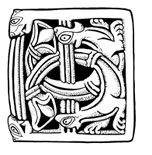
The Wages of Roe v. Wade
GUEST COLUMN
Prolife ethical discussions often center on abstractions such as the “personhood” of the fetus. The discussions need not be so dry now. January 22nd of this year marks 31 years of legal access to induced abortions across the U.S. Since 1973, millions of people have suffered physically and mentally from exercising this “right.”
The Macbeths committed regicide to solve a problem. Duncan’s death hurt Scotland, but in Macbeth, Shakespeare spent most of his lines tracing the deleterious effects of the murder on the Macbeths themselves. Shakespeare wanted to show what murder does to murderers. We, too, can examine what abortion has done to aborters over the past 31 years. Let’s see if the mothers, fathers, and doctors who killed to get someone out of their way also suffer.
Women were to have gained the most from universal access to abortion. They were the ones supposedly being spared the rigors of pregnancy and the spell of non-productivity. But the medical side effects of abortion do not inspire much rejoicing. In his book Lime 5, Mark Crutcher gives disturbing case studies of abortions committed in the U.S. which resulted in the death or disability of the mother. Here are just a few of the complications he logged: retained fetal material, sepsis, perforated urinary tracts, embolisms, abscesses and hemorrhaging caused by injuries to the uterine wall, the cervix, or small or large intestines. The lack of careful record-keeping and follow-up in American abortion clinics made it impossible for Crutcher to give actual statistics on the risks of death or injury after abortion. Conclusive research, if and when it is completed, will probably confirm European findings. They are not pretty. For example, studies cited by Elizabeth Ring-Cassidy and Ian Gentles in their book Women’s Health After Abortion estimate the maternal mortality rate among European women who have had induced abortions is four times higher than for those who brought their children to term.
Another devastating side effect of abortion is increased risk of breast cancer — a disease currently afflicting one out of 10 women in the U.S. and Canada. Since the 1950s, 27 out of 33 studies worldwide indicate a 30 percent higher risk for this disease for women who have had abortions.
Moreover, it seems that women who’ve had abortions are as unhappy as they are unhealthy. Grief is one reaction. Traumatic grief, having only been clinically profiled in the U.S. and Canada in the past decade, does not yet have a time-tested research history. So we must look elsewhere. In Japan, where abortion has been legal since 1948, grief is strikingly evident. There are no religious dicta against aborting children in Buddhist Japan because, according to Buddhism, even delivered-at-term babies do not yet have a soul. Yet Japanese mothers (and fathers) who have aborted their children do grieve. They do so by the tens of thousands in Buddhist temples and cemeteries, where Jizos, miniature statues representing the aborted Mizukos (unborn babies) are ritually dressed, prayed over, and otherwise propitiated for because of the violence done to them.
You May Also Enjoy
It's the ordinary things that I'm fighting for: the bond between mother and child; the family; the dignity of the body, which is not "owned" and is more than matter.
For the secularist to come to terms with the traditional (Catholic-leaning) Christian dramatist whom he loves, he must first confront the Bard as he is.
If interreligious connectedness is not recognized and cherished at a time when religion itself is imperiled, we are in a bad way.

